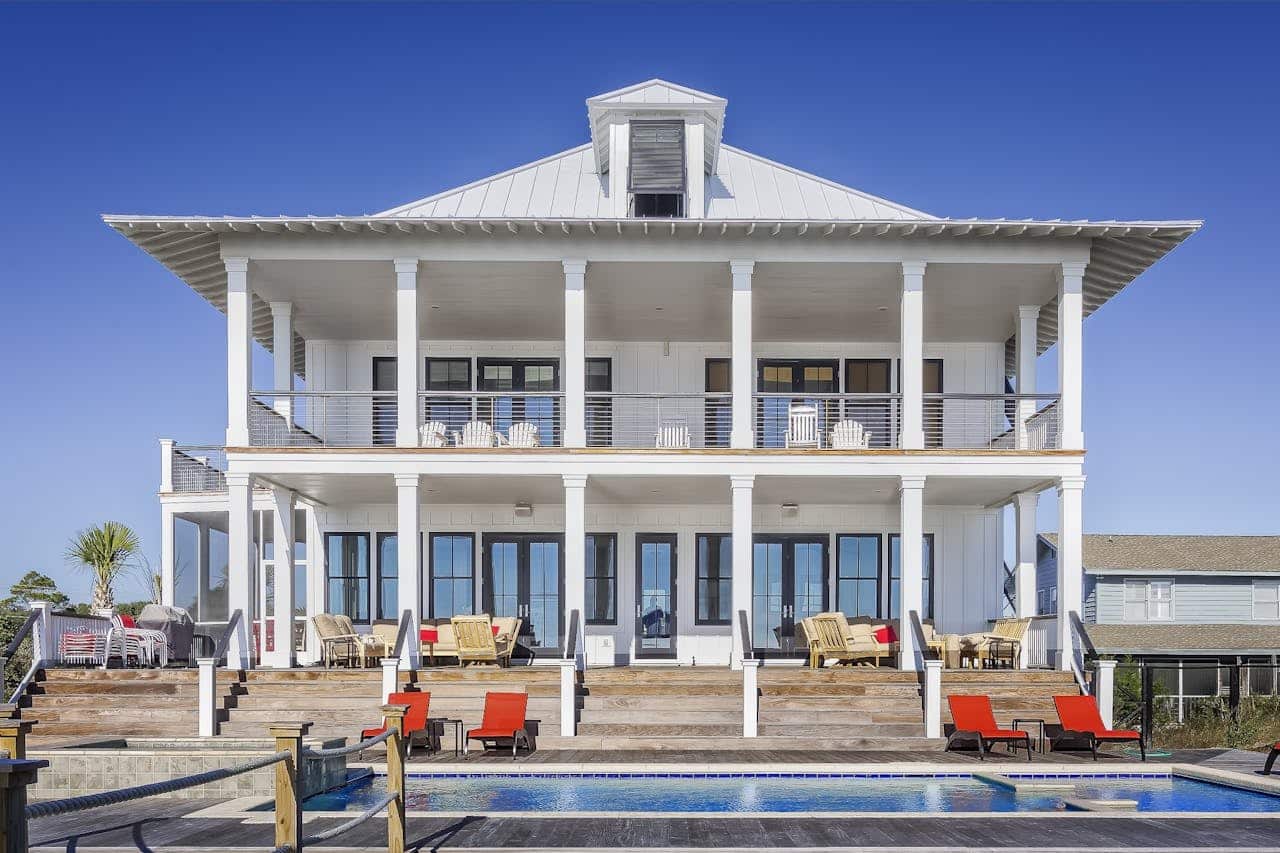Travel and tourism accommodation has been steadily shifting towards creating unique experiences for guests. If you are an investor looking to learn how to start a vacation home rental business, this is where you should put a considerable amount of your focus.
Thank you for reading this post, don't forget to subscribe!Try to answer this question: What is unique about my short-term rental property? This will create a foundation and be your guide to beginning your journey to short-term rental investing. However, as much as the uniqueness of your business is important, there are still other factors that you should consider when starting in the vacation rental business.
Today, we’ll try and look at the totality of getting your business off the ground for a beginner and the pitfalls to avoid. We’ll look at each step in detail and discuss the ins and outs of putting in place measures and policies to make sure that your property is viable to give you a return on your investment. But here is a summary of what you need to do as an investor starting out in the vacation rental business.
Overview of How to Start a Vacation Rental Business
- Understand the Vacation Rental Market
- Set Your Investment Goals and Expectations
- Choose the Right Location For Your Vacation Property
- Speak to a Short-Term Rental Expert About Financing Your Vacation Rental Property
- Legal and Regulatory Compliance
- Marketing Your Vacation Rental
The Vacation Rental Market in America
The vacation rental business has witnessed a meteoric rise thanks in part to the increasing preference of travelers for private, homely accommodations over traditional hotel stays. Data from industry analysts suggests a steady growth trajectory, with the market size of vacation rentals in the US expected to increase in 2024.
This underlines its potential as a solid investment strategy. Take the Airbnb platform, for example, between 2017 and 2019, Airbnb's global revenue soared from $2.56 billion to $4.81 billion. This upward trend continued post-pandemic, with Airbnb's global revenue exceeding $9 billion in 2023.
Data from Backlinko's Airbnb Revenue and Booking Statistics (2023) reveals that North America's average nightly rate for Airbnb accommodations is the highest globally, at $174. This surpasses the average daily rate for US hotels in 2022, which was $148, positioning Airbnb as a favored choice for accommodation among travelers seeking premium experiences.
The US market for Airbnb is influenced by several trends and consumer preferences, emphasizing the demand for flexible, unique, and sustainable travel options. The rise of remote work has further fueled the "workation" trend, blending work responsibilities with leisure travel, and driving increased interest in extended stays at Airbnb properties.
Such growth is propelled by the allure of potentially higher rental income, personalized customer experiences, and the flexibility it offers to both property owners and guests.
How to Start a Vacation Home Rental Business: Comprehensive Guide

Starting a vacation home rental business offers the potential for passive income and the opportunity to participate in the burgeoning hospitality industry. The Short Term Shop are real estate estate agents and consultants who focus exclusively on helping investors buy, sell, and manage short-term properties. The team of dedicated professionals helps investors navigate through the short-term rental market.
If you need any assistance, guidance, or advice in starting a vacation rental business, speak to one of our short-term rental property consultants today. Here are six steps important in starting a profitable vacation rental business.
1. Understand the Vacation Rental Market
The first step in starting a vacation rental business is to understand the short-term rental market. The industry has seen rapid growth in recent years, driven by increasing traveler demand for unique and personalized lodging experiences.
Familiarize yourself with current trends, market demands, and the competitive landscape. This knowledge will help you make informed decisions about how to position your vacation rental property to stand out.
Researching the vacation rental industry also involves understanding regulatory aspects, such as zoning laws and short-term rental regulations in your target area, which can significantly impact your operation.
2. Set Your Investment Goals and Expectations
Before getting into the vacation rental business, it's essential to set clear investment goals and realistic expectations. Whether you're looking for a primary source of income or a supplementary revenue stream, defining your objectives will guide your decisions throughout the process.
Consider factors like your budget, desired rental income, and long-term aspirations for your real estate portfolio. Crafting a detailed real estate business plan can help articulate these goals and serve as a roadmap for your business venture. The plan should account for initial investments, operating expenses, and strategies for achieving your desired financial outcomes.
3. Choose the Right Location For Your Vacation Property
The success of your vacation rental business heavily depends on its location. Properties in high-demand tourist destinations or near major attractions often generate higher rental income due to their desirability.
However, it's also important to consider the competition, local regulations, and the seasonal nature of the market in these areas. Conduct thorough market research to identify locations with growth potential that align with your business plan and investment goals.
The right location will not only attract more guests but also contribute to the long-term appreciation of your vacation rental property.
4. Speak to a Short-Term Rental Expert About Financing Your Vacation Rental Property
Financing is a critical aspect of starting a vacation rental. It's advisable to consult with short-term rental experts or financial advisors who specialize in the vacation rental industry. They can provide valuable insights into the best financing options for your situation, whether it's taking out a mortgage, leveraging existing assets, or exploring other investment property financing solutions.
They can also offer advice on managing start-up costs, estimating potential rental income, and maximizing the profitability of your vacation rental property. With the right financial strategy, you can ensure the sustainability and growth of your business venture in the competitive hospitality industry.
5. Legal and Regulatory Compliance
One of the critical steps in learning how to start a vacation home rental business involves navigating the complex landscape of legal and regulatory compliance. This aspect is paramount not only to ensure the legality of your operation but also to protect your business and your guests.
The requirements can vary significantly from one location to another, encompassing zoning laws, licensing requirements, tax obligations, and adherence to health and safety standards.
- Initially, you should research and understand the specific zoning laws in your area to ensure that operating a vacation rental is permitted. Some jurisdictions may have restrictions or require special permits to run short-term rentals.
- Next, obtaining the necessary licenses and permits is crucial to operate legally. This process might include registering your business, obtaining a tax identification number, and securing a short-term rental license.
- Taxes are another critical area of compliance. Vacation rental owners are typically required to collect and remit various taxes, including sales tax, occupancy tax, and in some cases, income tax on rental earnings. It’s advisable to consult with a tax professional to understand your tax obligations fully.
- Finally, ensuring your property meets all health and safety regulations is essential. This may involve conducting regular inspections, installing safety equipment like smoke detectors and fire extinguishers, and maintaining liability insurance to protect against potential claims.
6. Marketing Your Vacation Rental
After ensuring your vacation rental complies with all legal and regulatory requirements, the next step in how to start a vacation home rental business is effectively marketing your property. A robust marketing strategy is vital to attract guests, maximize occupancy rates, and ensure a steady stream of rental income.
- Start by creating compelling listings for your property on popular vacation rental platforms like Airbnb, VRBO, and Booking.com. Your listings should include high-quality photos, a detailed description of your property, the amenities you offer, and any unique features or experiences that set your rental apart from the competition. Investing in professional photography and writing engaging, clear, and concise descriptions can significantly impact your listing’s attractiveness.
- Developing a dedicated website for your vacation rental can also enhance your marketing efforts. A website allows you to showcase your property in more detail, offer direct bookings, and provide additional information about the area and local attractions. Implementing search engine optimization (SEO) strategies on your website can improve its visibility in search engine results, attracting more potential guests.
- Social media marketing is another powerful tool for promoting your vacation rental. Platforms like Instagram, Facebook, and Pinterest are ideal for sharing photos and updates about your property, engaging with potential guests, and building a brand around your rental. Consider running targeted advertising campaigns on these platforms to reach a broader audience.
- Lastly, encouraging reviews from past guests can significantly boost your vacation rental’s reputation and appeal. Positive reviews can enhance your listings on rental platforms, improve your search rankings, and provide valuable social proof to prospective guests.
Common Pitfalls to Avoid as a Beginner in Vacation Rental Business Investing
Underestimating Operational Costs
One of the first hurdles that new investors encounter is underestimating the operational costs associated with running a vacation rental. These can include cleaning services, maintenance, repairs, utilities, and property management fees.
It's essential to have a realistic understanding of these expenses and factor them into your vacation rental business plan to ensure profitability. Failing to account for these costs can lead to financial strain and can quickly consume your rental income.
A detailed short-term rental startup plan should include a thorough budget that covers all foreseeable expenses, as well as a contingency fund for unexpected costs.
Neglecting Local Regulations and Legal Requirements
Many beginners are unaware of the zoning laws, licensing requirements, and tax implications associated with starting a vacation rental business. Ignorance of these aspects can lead to legal complications, fines, and even the closure of your business.
To avoid this, your vacation rental startup checklist should include a step for researching and complying with all local regulations. It’s often beneficial to consult with legal and tax professionals who specialize in real estate and vacation rentals to ensure full compliance and to protect your investment.
Overlooking Marketing and Guest Experience
In the excitement of setting up the property, beginners may neglect the need for a comprehensive marketing strategy to attract guests and generate bookings. Additionally, failing to prioritize the guest experience can lead to negative reviews and a poor reputation, which are difficult to recover from in the competitive vacation rental market.
Your vacation rental business plan should include a detailed marketing plan that covers online listings, social media, and direct marketing efforts. Equally, ensure your property is well-maintained, comfortably furnished, and equipped with amenities that enhance the guest experience.
Gathering feedback from guests and making continuous improvements based on their suggestions can also help elevate your rental's appeal.
The Short Term Shop Will Help You Start Your Vacation Home Rental Business

The Short Term Shop provides an invaluable resource for investors embarking on their journey into the vacation home rental business. We offer tailored solutions that address the complexities and nuances of starting and managing a successful short-term rental venture - from crafting a comprehensive vacation rental business plan to navigating the intricacies of local regulations and marketing strategies.
Our expertise not only helps investors avoid common pitfalls but also ensures that every aspect of the investment process is covered. By leveraging our extensive knowledge and resources, investors can confidently make informed investment decisions, ensuring their properties are profitable and sustainable.
Do you have any questions or inquiries about vacation home investing? Are you looking for more information about how to start a vacation home rental business? Schedule a consultation call with one of The Short Term Shop’s property experts.
